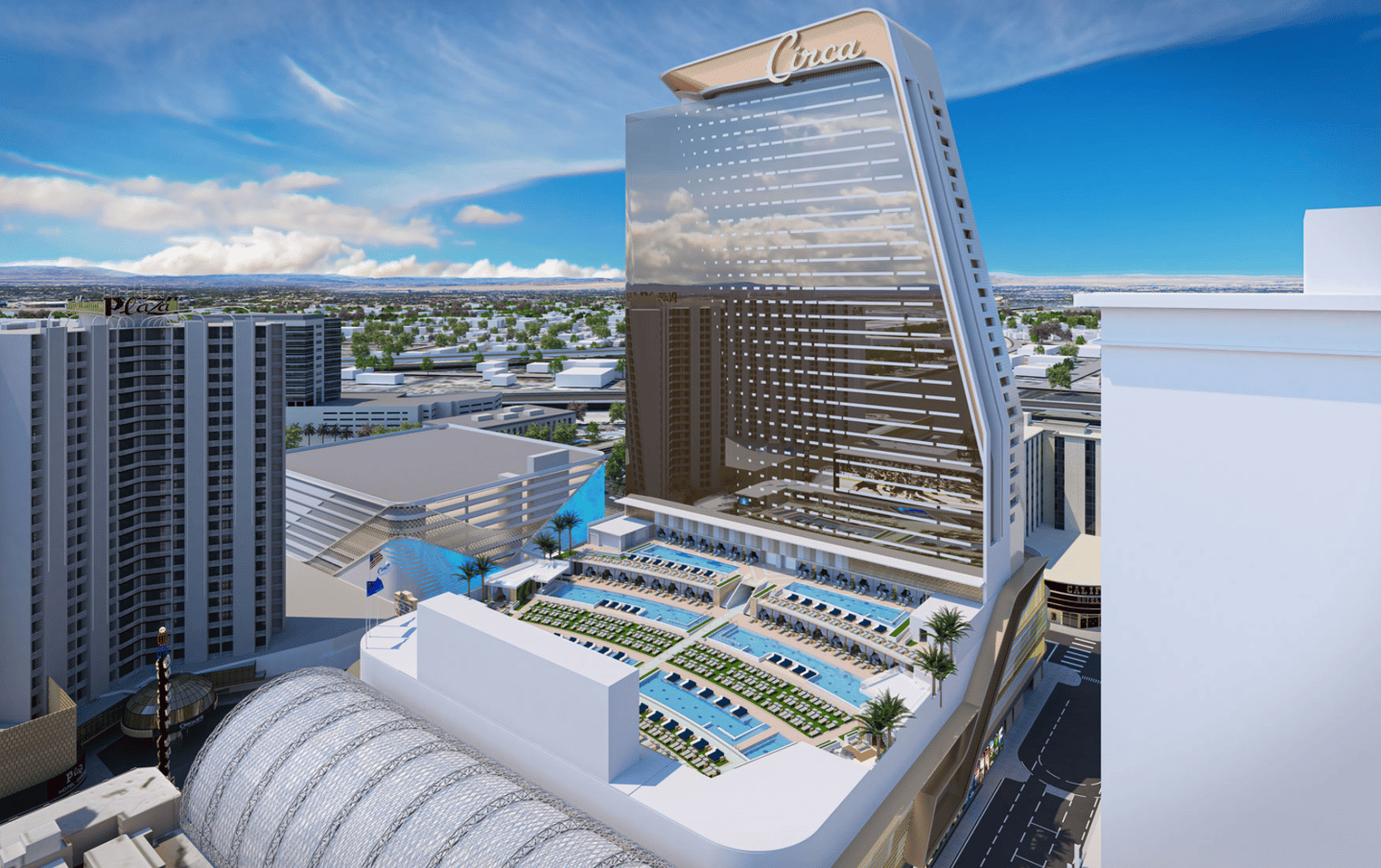New Las Vegas Casino Resort Goes All In on Infrastructure
On October 28, Circa Resort & Casino – Vegas' first adults-only casino-resort – opened its doors. Located in historic downtown Las Vegas, the 1.25 million-square-foot resort will be the area’s first casino-resort built from the ground up in more than 40 years. It will pay homage to the city's Golden Era through vintage design, nods to Vegas history and old-school service, while also offering guests high-tech advancements.
In true Las Vegas fashion, many of the high-tech amenities within the Circa resort will be operating quietly and efficiently behind the scenes to ensure the guest experience is truly exceptional. In particular, the hotel’s HVAC and pool system are using technologies that go above and beyond what is required when it comes to filtering and cleaning the two most important resources to humans: air and water. To learn more about the casino-resort, HT spoke with Greg Stevens, co-owner, about the forward-looking technology it has deployed for both its HVAC system and Pool.
A Breath of Fresh Air
From the very beginning, Stevens knew that he wanted a different type of HVAC system in his resort. With a laser focus on efficiency, Stevens took a long-range view of the project – looking to see what type of system would be the most efficient, not just in the next five to ten years, but up to twenty years down the road. His thinking was, let’s first “design the perfect HVAC system, and we can work the budget around it.”
So what makes Circa’s HVAC system so different? Unlike traditional HVAC systems, which recirculate quite a bit of air within the building, Circa’s is designed to pull 100 percent of the air from outside the building. Of course, recirculation is possible -- for example, the hotel might choose to recirculate air during times of extreme temperature – it just isn’t necessary.
How though, is Circa’s HVAC system able to accomplish this? The HVAC system pulls fresh air inside the building, conditions it, and pushes it up through approximately 1,400 vents under the casino’s false flooring. The vast quantity of vents provides exceptional coverage, and the air is pulled straight up to the ceiling where it is then captured by the HVAC system and exhausted outside. This not only allows the system to flush the entire building with fresh air every few minutes, but also provides cost savings. How so?
“The air is only going from the floor straight to the ceiling,” Stevens says, “and we don’t have to move as much air. We don’t blend the air and we have linear flow from the floor to the ceiling. This has to do with the raised floor system and how we are delivering the air to the space that the guests are in.”
While this isn’t a technology that can be retrofitted to older buildings, Stevens believes that new builds should seriously consider installing this type of HVAC system.
“It’s all about the customer, if they would like the best environment for their customers, this is the way to go,” he explains. “The other systems blend the air in the ceiling and we are bringing in fresh air right where the people are. It is for sure the cleanest air, has the most uniform temperature across the whole floor and is the most efficient way to deliver the air and cool the air. It is the most efficient and most comfortable for the customers. Overall, you’ll definitely get the pay back on it.”
Come on in, The Water's Fine
A nifty HVAC system isn’t the only infrastructure technology improvement up Steven’s sleeve. He also installed a high-tech pool system to ensure water cleanliness, one of the hotel’s key priorities.
“We didn’t want a high-volume dirty pool at our resort,” Stevens said, “which is something that is fairly common at Las Vegas resorts. We wanted it to be crystal clear no matter what.”
So the team conducted in-depth research on the development of a pool that can self-clean several times a day. As a result, Circa’s pool water will be fully recirculated every hour or six times faster than required by codes. To ensure this happens quickly and efficiently, the hotel had to install pipes and pumps that are much larger than the standard ones used by most resort pools.
“Typical pool pipes are usually 2 inches,” Stevens explains. “Stadium Swim’s range from six to eight inches. We are moving six times as much water as standard pools.”
Additionally, while typical pool filters are filled with sand, Stadium Swim’s will use an activated glass material that is a 100 percent bio-resistant and self-sterilizing. This will allow for a greater surface cleaning area, resulting in clearer and healthier water that is two times more effective than if sand was used. And all eight water bodies have water passing through UVL sanitizers within the water pipes to destroy pathogens, bacteria, viruses, organic and inorganic contaminants, and greatly reduce chlorine use.
The pools also have highly sophisticated and real-time chemical monitoring controllers in place to continuously analyze the composition of all pool and spa water. The sensors check the pH levels, the chlorine levels, etc. and if they detect anything out of the ordinary within the water chemistry, they automatically adjust by adding the appropriate chemicals from 1,000 gallon tanks of Chlorine located on the property.
While this system cost quite a bit more to install than “regular” pool filters and cleaning systems, Stevens thinks this technology will become standard at hotels.
“With COVID, the focus on ‘clean’ and ‘safe’ has skyrocketed within the hospitality industry,” he notes. “Being able to assure guests that your pool is as close to germ-free as possible AND also having them SEE the crystal clear water will go a long way to creating trust and loyalty among guests.”



